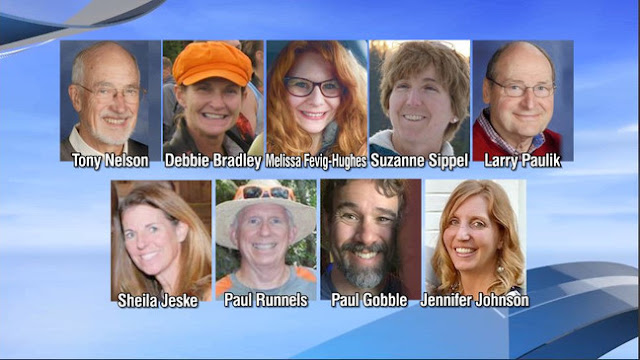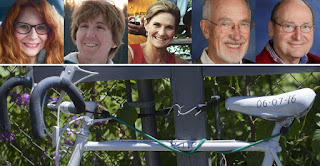Nine years ago today, the Kalamazoo, Michigan area bore one of the most horrific incidents of a motorist running down cyclists I’ve ever heard about.
Nine members of a local riding group who called themselves “The Chain Gang”—all experienced cyclists over the age of 40–were out for a late-day ride on Westnedge Avenue in nearby Cooper Township. Police received a call about a blue Chevy pickup truck being driven erratically. About five minutes later, that truck plowed into the cyclists. Four would survive, albeit with significant or serious injuries. Debbie Bradley, Melissa Fevig Hughes, Tony Nelson, Larry Paulik and Suzanne Sippel did not.
The driver, Charles Pickett Jr., was—perhaps not surprisingly—intoxicated. In 2018, he was found guilty of 14 felony charges, including second degree murder. He, at the age of 50, was sentenced to 40 to 75 years in prison and won’t be eligible for parole until he’s 90.
Since then, Kalamazoo has taken steps to become more “bike friendly” and safer. While I laud their efforts, I think more needs to be done, there and elsewhere, to educate drivers and create deterrents against, and stiffer penalties for, endangering or killing cyclists and pedestrians.

































